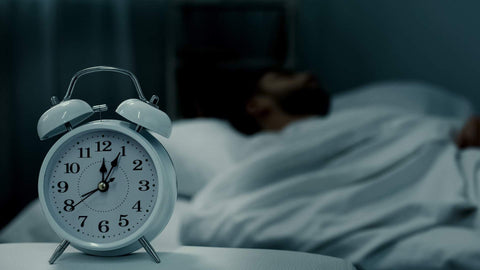Dealing with an ear infection can make getting a good night's sleep challenging. The discomfort and pain can keep you tossing and turning, but there are effective ways to find relief. Sleeping with your head elevated and on the unaffected side can help alleviate pressure and promote drainage from the infected ear.
You can enhance your comfort by using warm compresses before bed and taking over-the-counter pain relievers as recommended by your doctor. Creating a quiet sleeping environment is also crucial, as loud noises can exacerbate ear pain and disrupt your rest.
By implementing these strategies, you can improve your sleep quality while your ear infection heals. Remember, proper rest is essential for recovery, so prioritizing sleep during this time is key to feeling better faster.
Understanding Ear Infections
Ear infections can cause significant discomfort and disrupt sleep. They occur when bacteria or viruses infect the middle ear, leading to inflammation and fluid buildup.
Causes and Symptoms
Ear infections often result from colds, flu, or respiratory infections. These conditions can cause swelling in the eustachian tubes, trapping fluid in the middle ear. Children are more susceptible due to their smaller, more horizontal eustachian tubes.
Common symptoms include:
- Ear pain
- Pressure or fullness in the ear
- Fluid drainage
- Hearing difficulties
- Fever
- Irritability (especially in children)
- Balance issues
You may experience itching, discharge, or difficulty sleeping. In infants, excessive crying or pulling at the ears can indicate an infection.
Treatment Options
Most ear infections resolve on their own within a few days. To manage symptoms:
- Use over-the-counter pain relievers like ibuprofen or acetaminophen
- Apply a warm compress to the affected ear
- Rest with your head elevated to promote drainage
For severe or persistent infections, your doctor may prescribe:
- Antibiotics (for bacterial infections)
- Ear drops to relieve pain
- Decongestants to reduce swelling
Prevention is key. Wash your hands frequently, avoid secondhand smoke, and keep up with vaccinations. If symptoms persist or worsen, consult your healthcare provider for proper diagnosis and treatment.
Strategies for Sleeping with an Ear Infection
Proper sleep positioning, home remedies, and comfort measures can significantly improve your rest when dealing with an ear infection. These strategies aim to reduce pain, promote drainage, and support the healing process.
Optimal Sleep Positions
Sleep on your unaffected side to allow the infected ear to drain properly. This position helps prevent fluid buildup and reduces pressure on the ear canal. If you prefer sleeping on your back, elevate your head using extra pillows or a wedge pillow. This elevation aids in draining fluids from your ear and can ease discomfort.
For infants and young children, slightly elevate the head of their crib or bed. Always ensure their sleeping surface remains firm and safe. If breastfeeding or bottle-feeding, keep your baby's head elevated during and after feedings to prevent fluid from flowing into the middle ear.
Home Remedies and Pain Management
Apply a warm compress to the affected ear for 10-15 minutes before bedtime. This can help alleviate pain and promote blood circulation. If heat causes discomfort, try a cool compress instead.
Use over-the-counter pain relievers as directed by your doctor. These can help manage pain and reduce fever, allowing for better sleep.
Stay hydrated by drinking plenty of fluids. This helps thin mucus and may ease pressure in your ears and throat.
Reducing Infection-Related Discomfort
Run a humidifier in your bedroom to add moisture to the air. This can help soothe irritated nasal passages and ease breathing.
Take a warm shower before bed. The steam can help open up your nasal passages and provide temporary relief from congestion.
Avoid sleeping with earbuds or headphones, as these can introduce bacteria and worsen the infection.
If ear drainage is an issue, place a clean cotton ball gently in your outer ear to absorb fluids. Change it as needed throughout the night.



